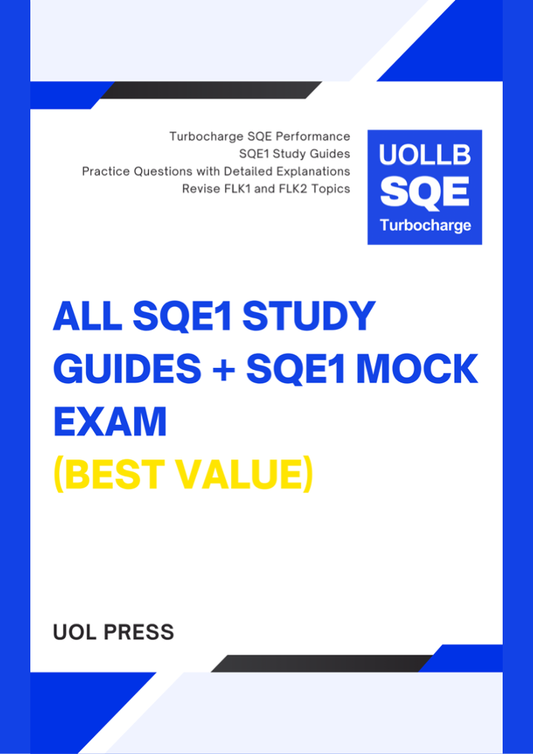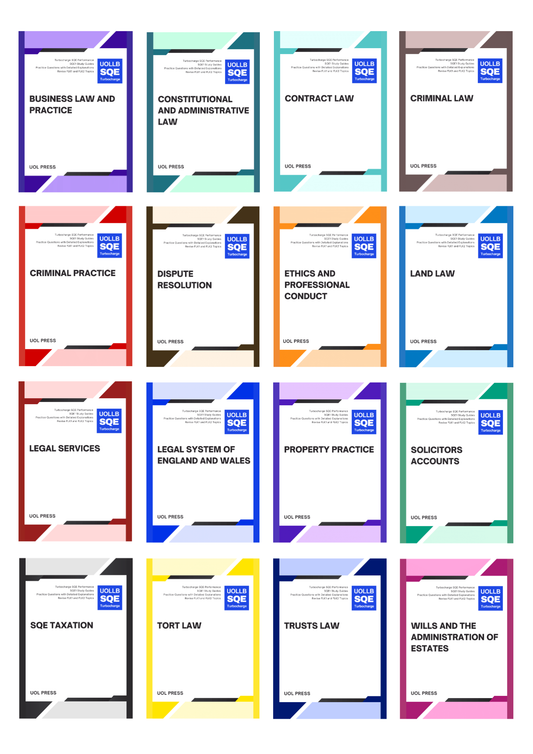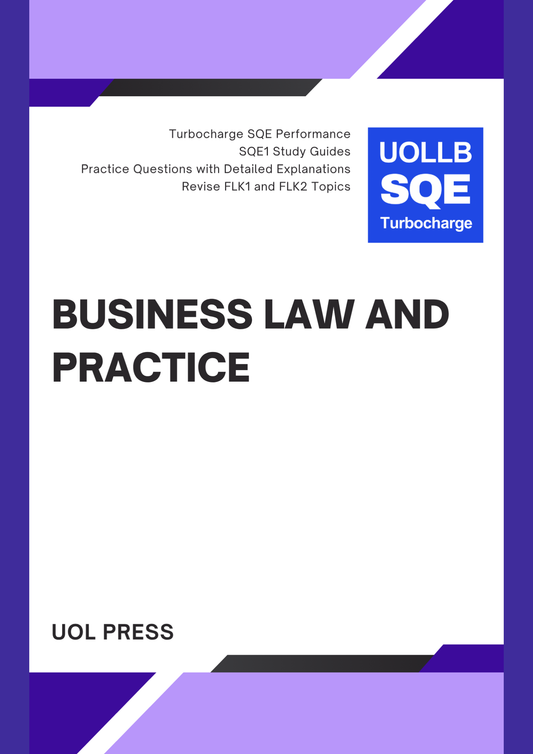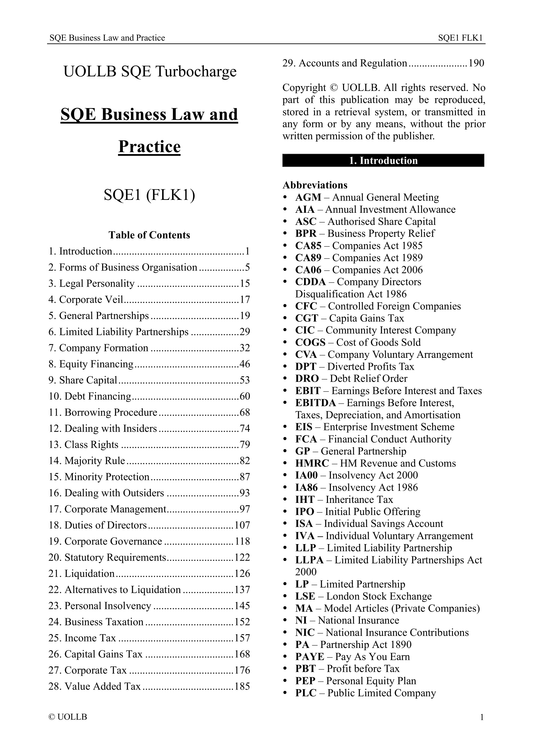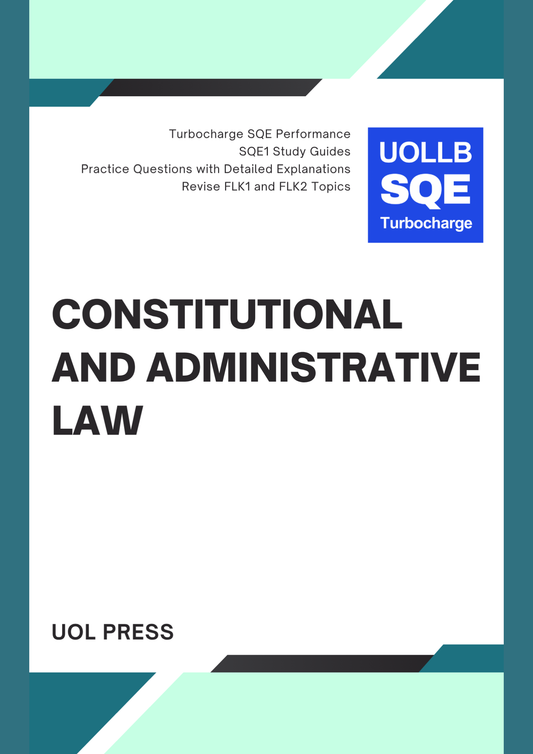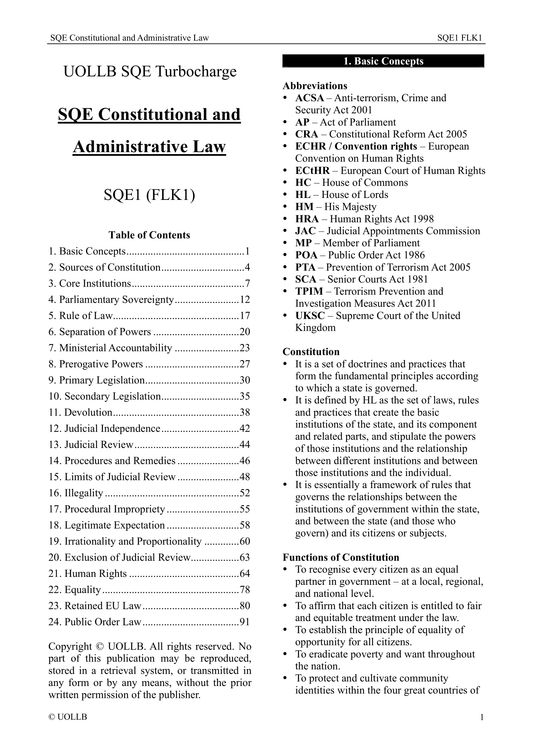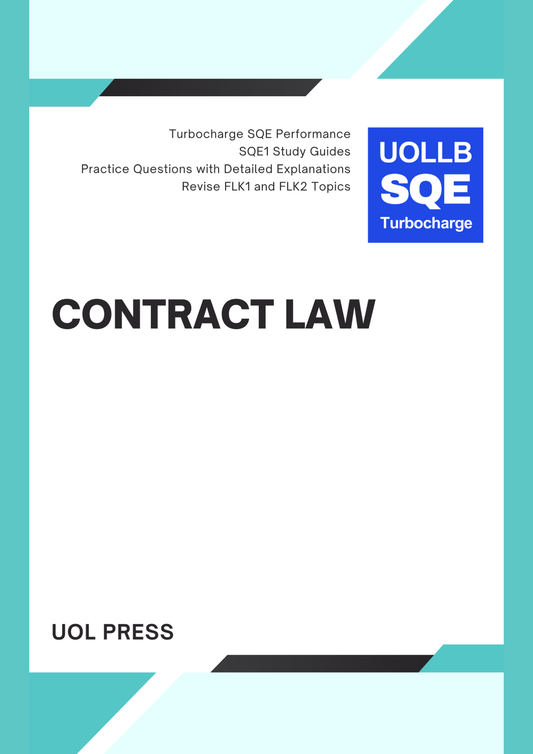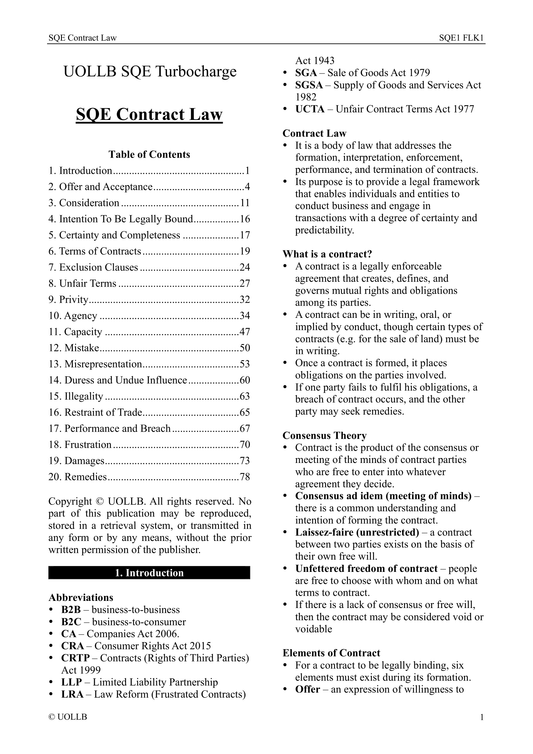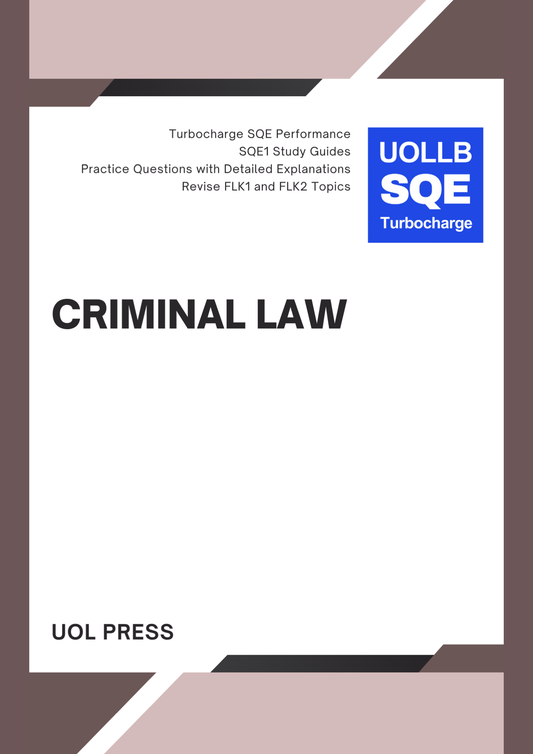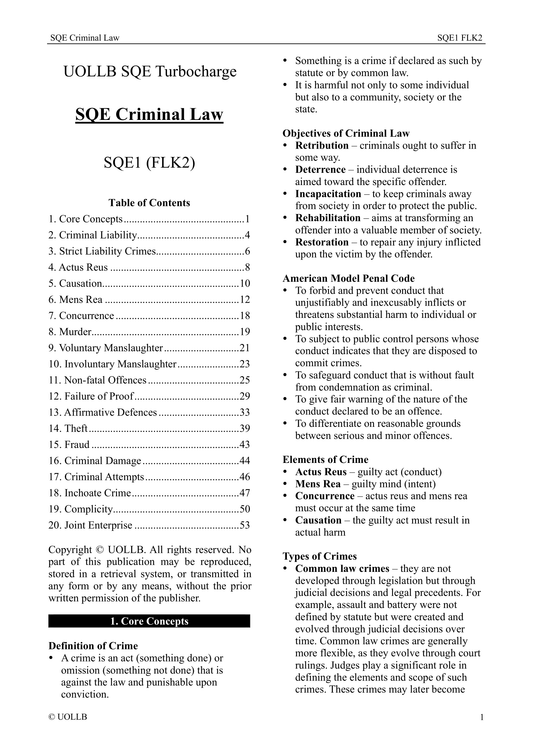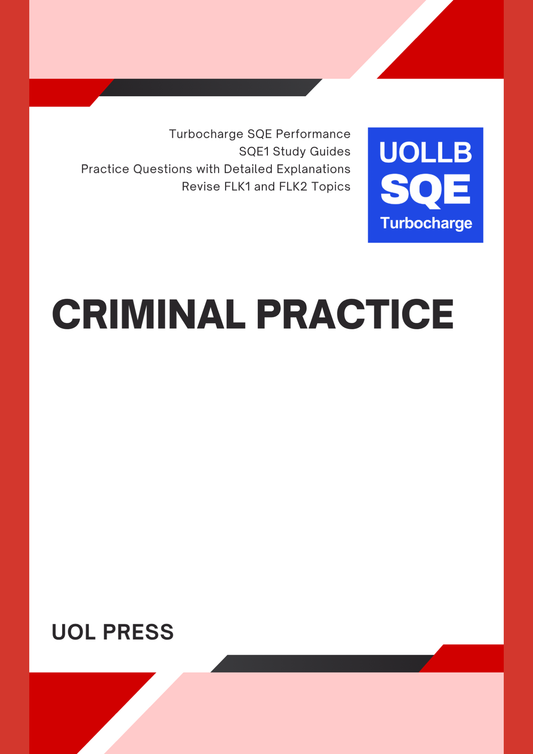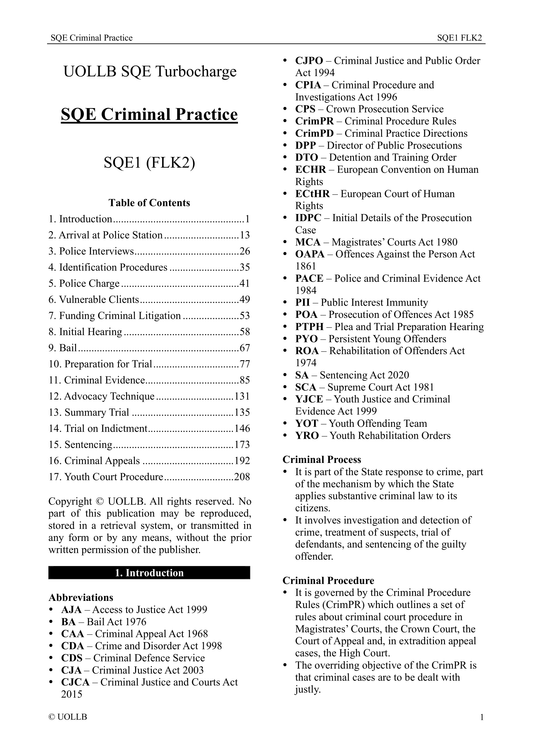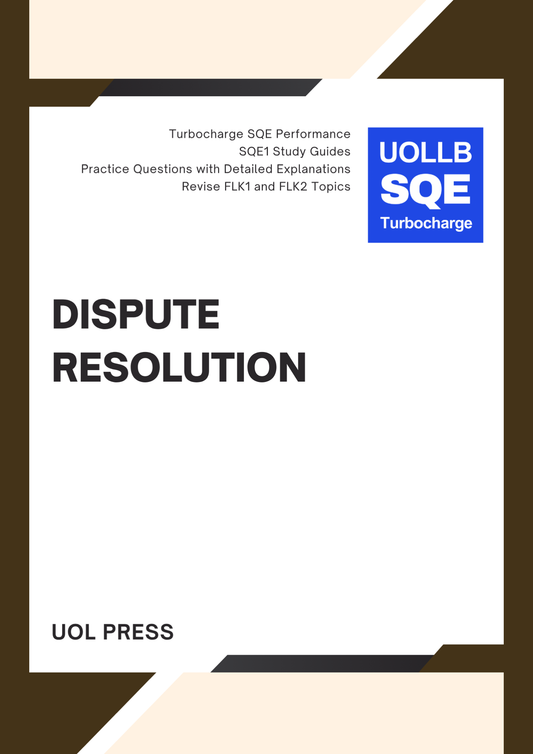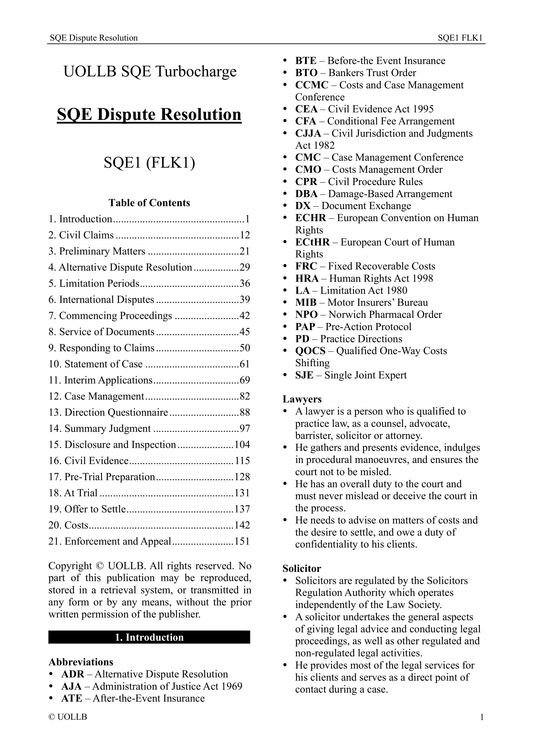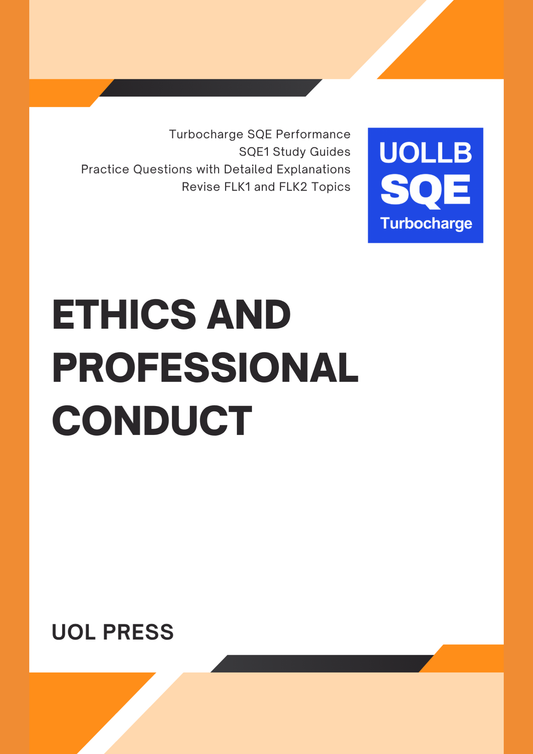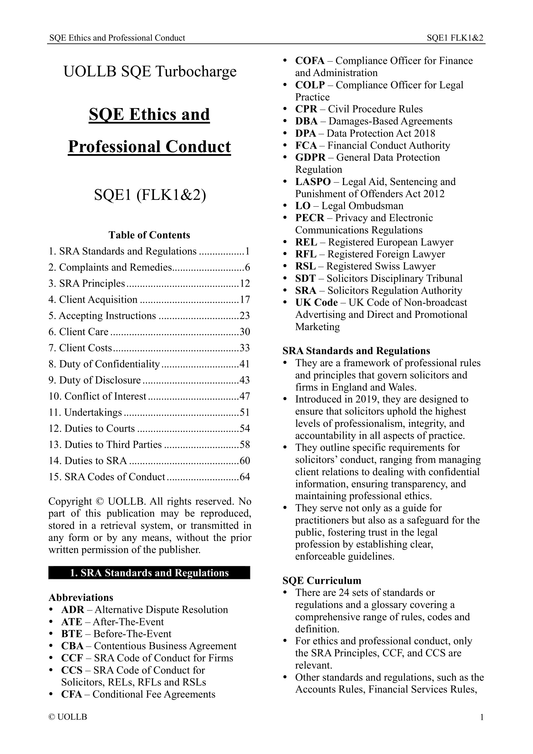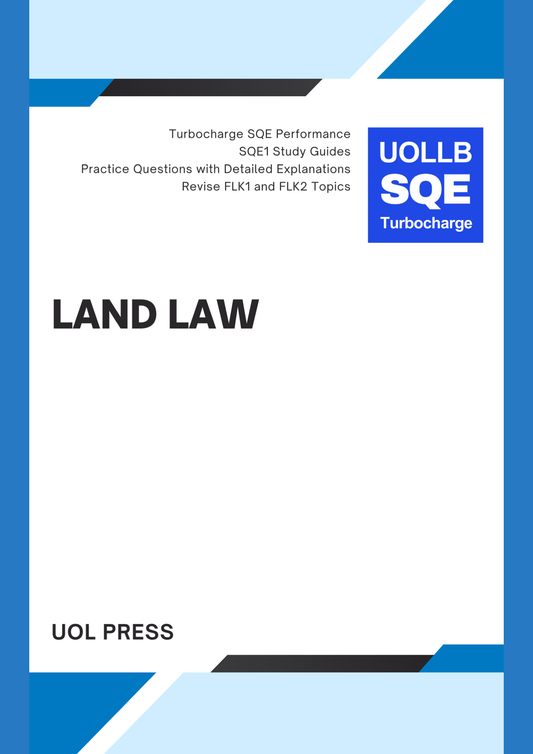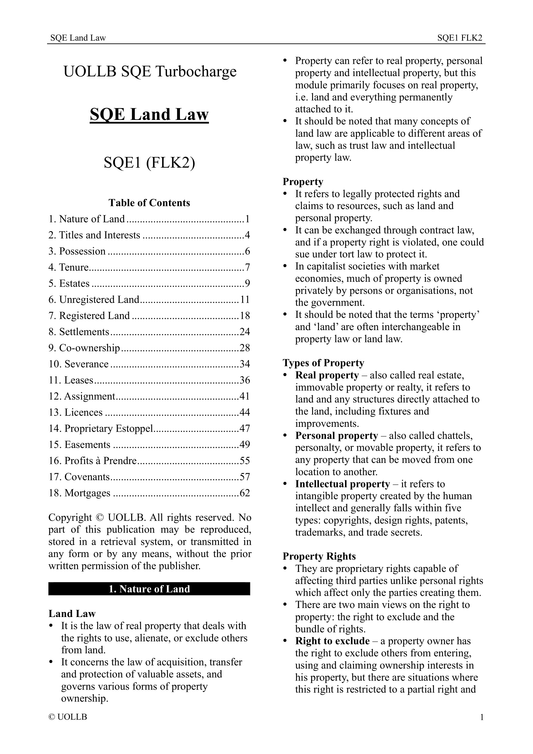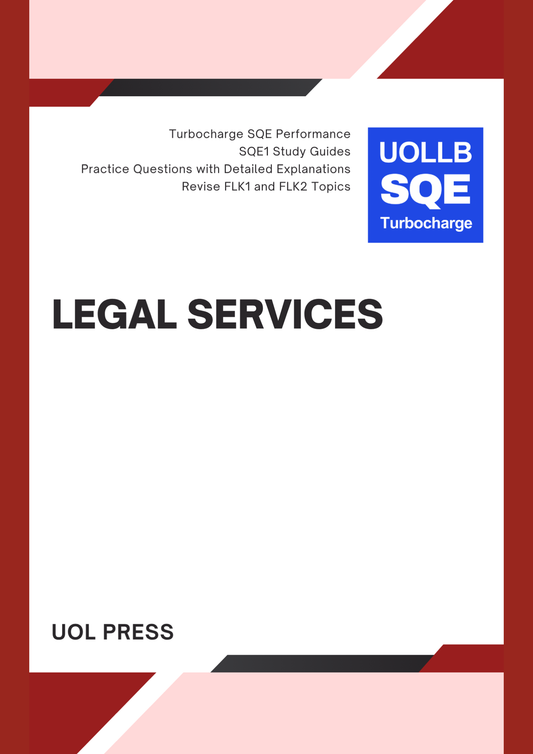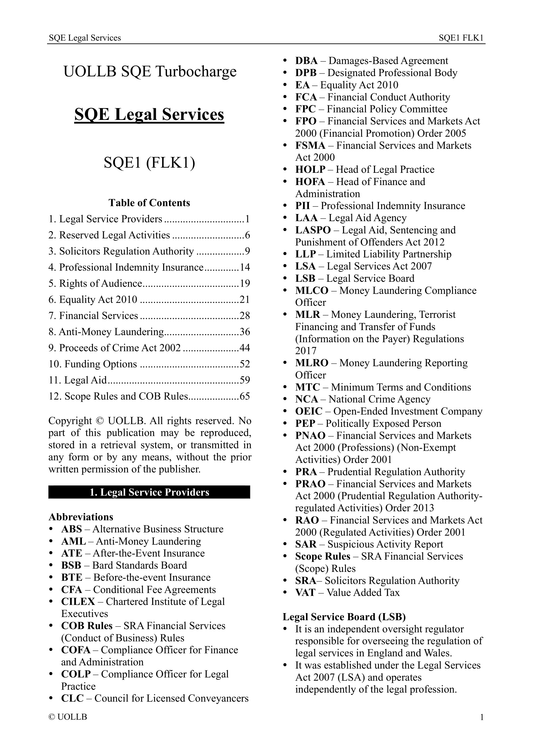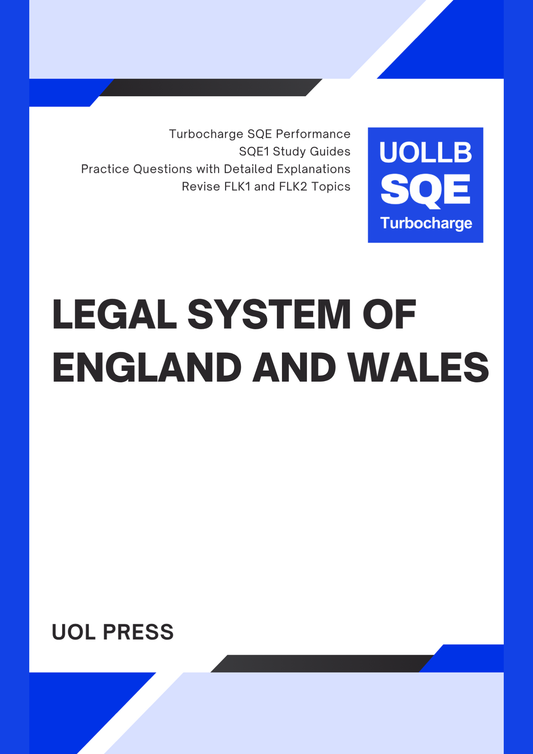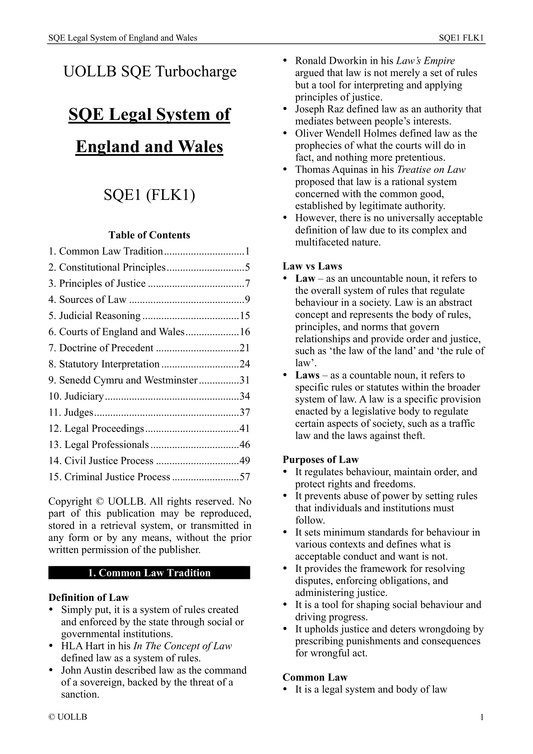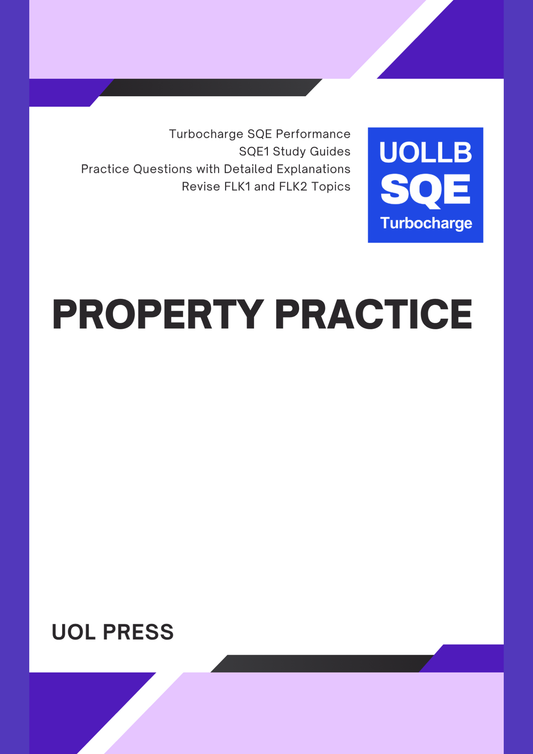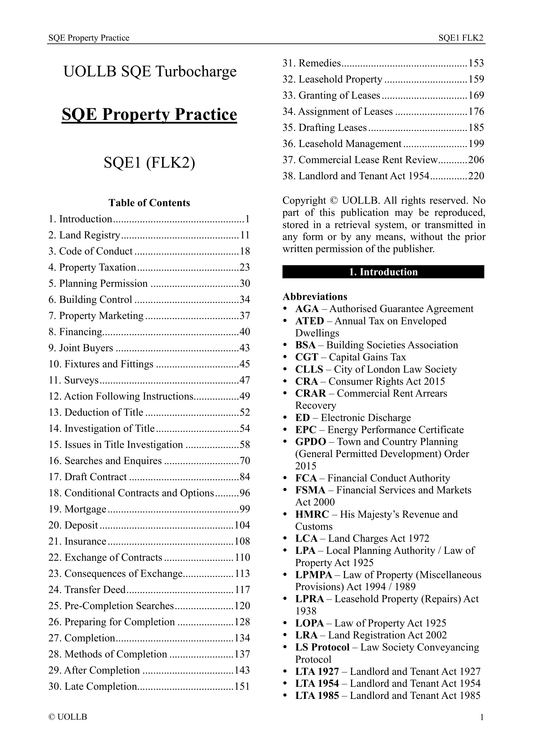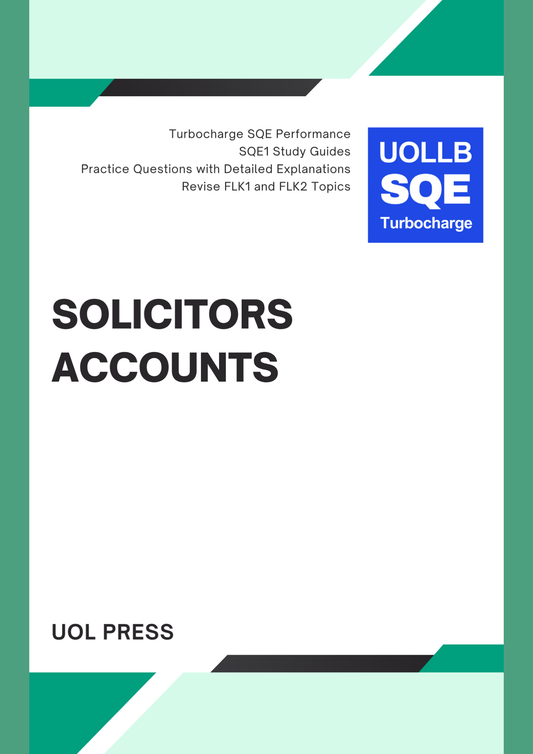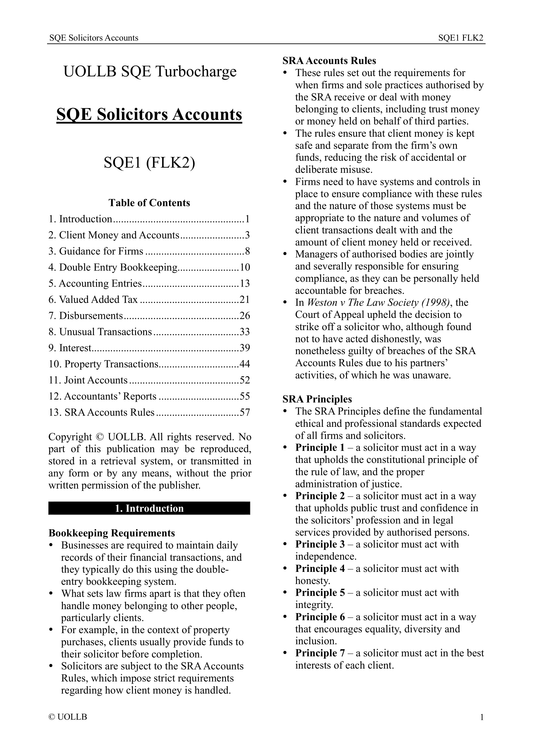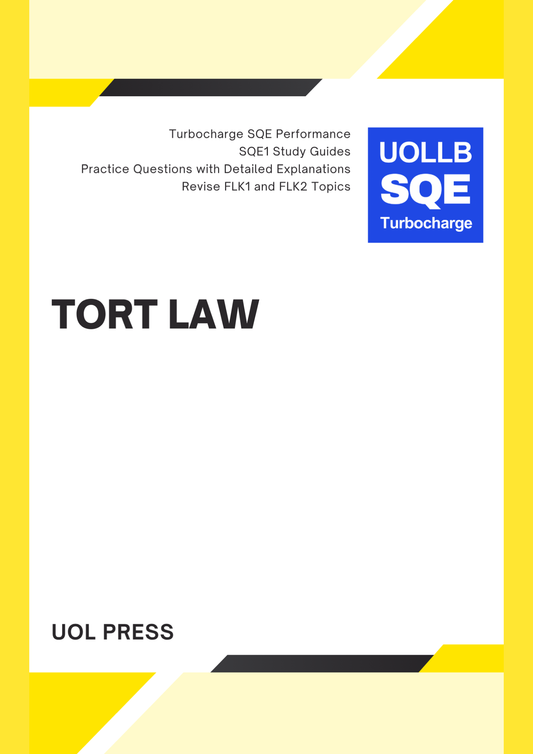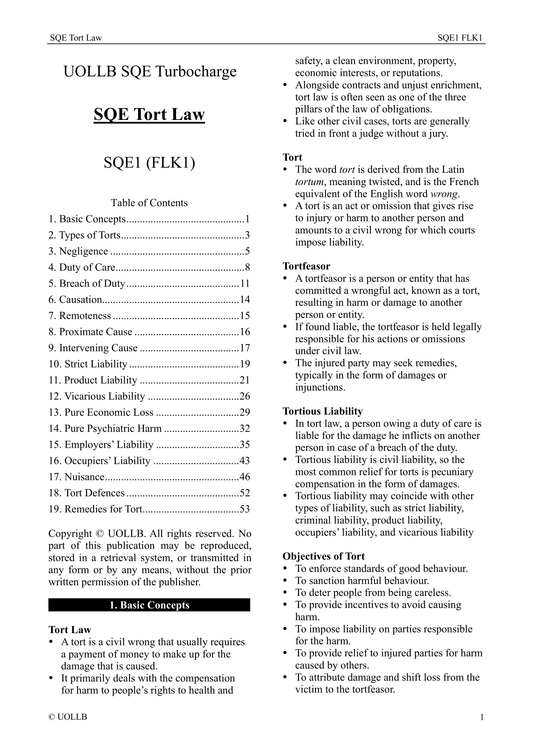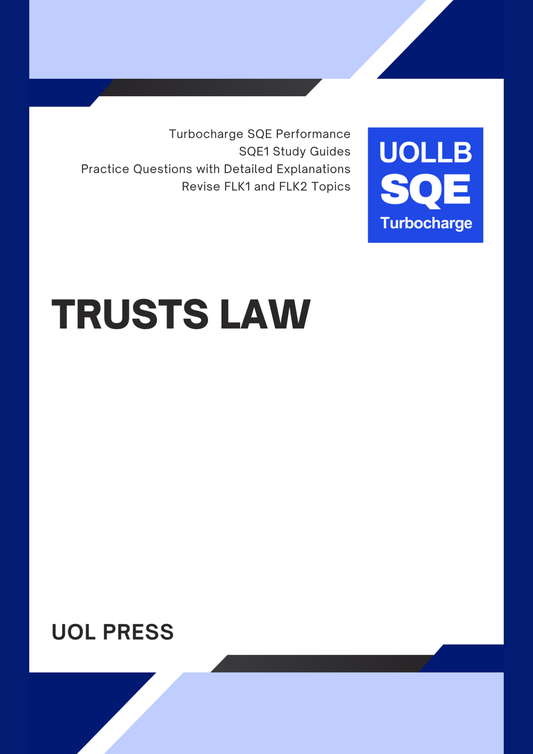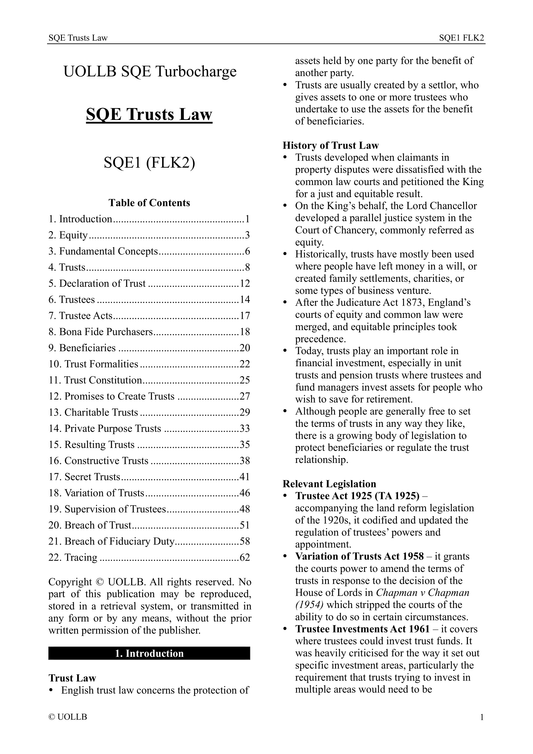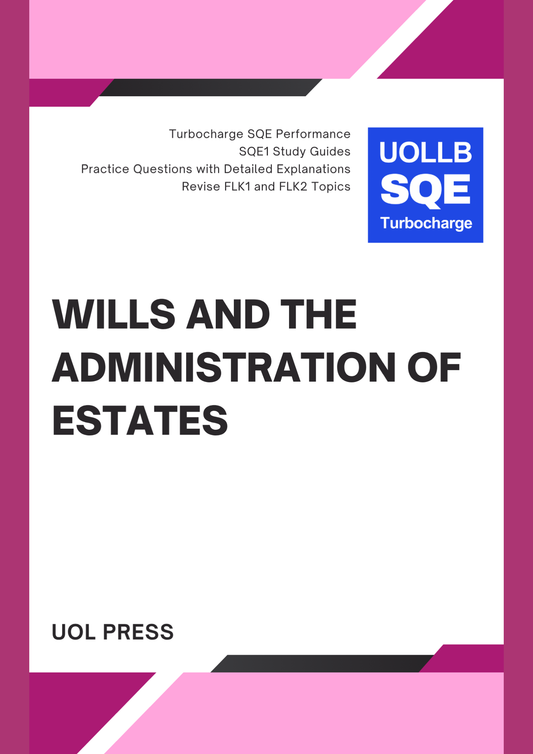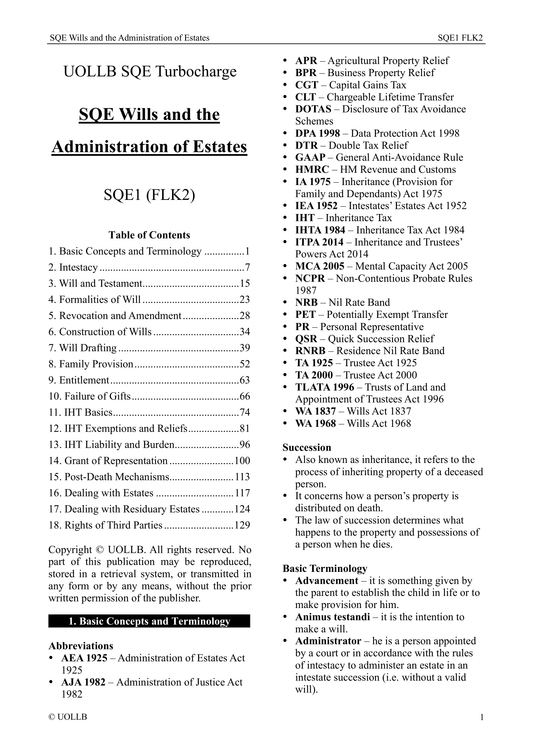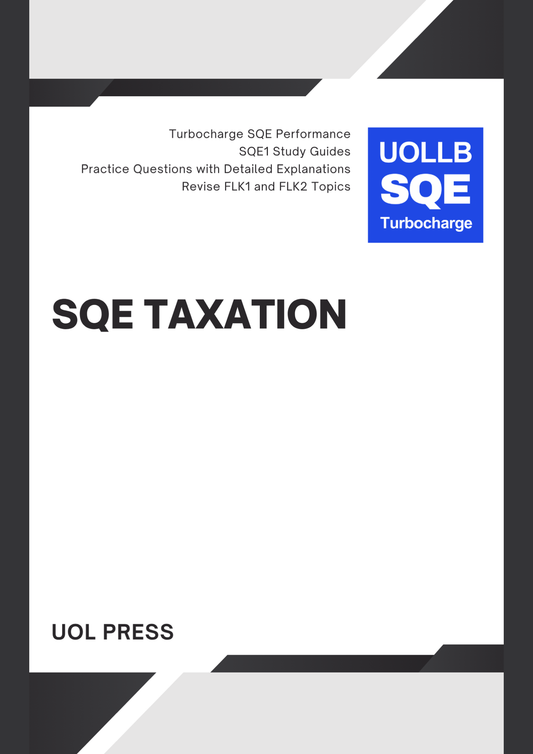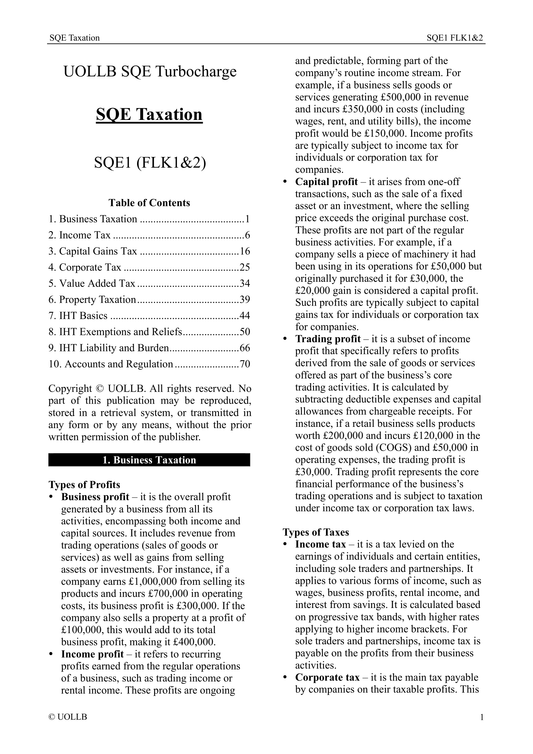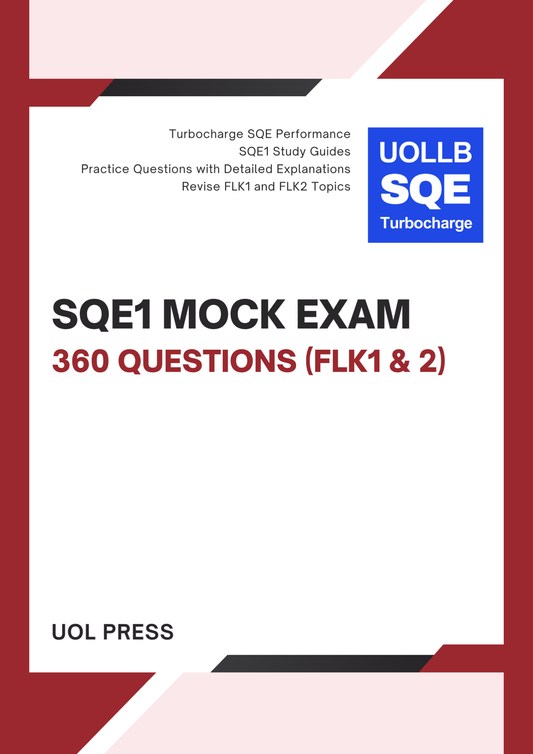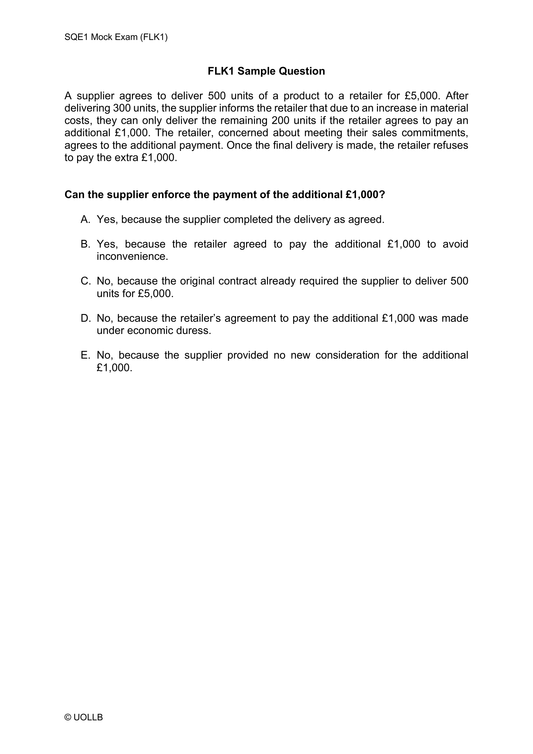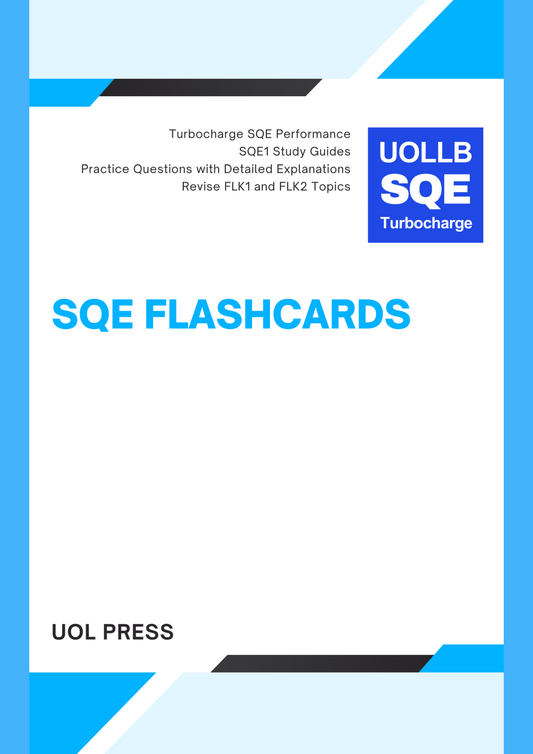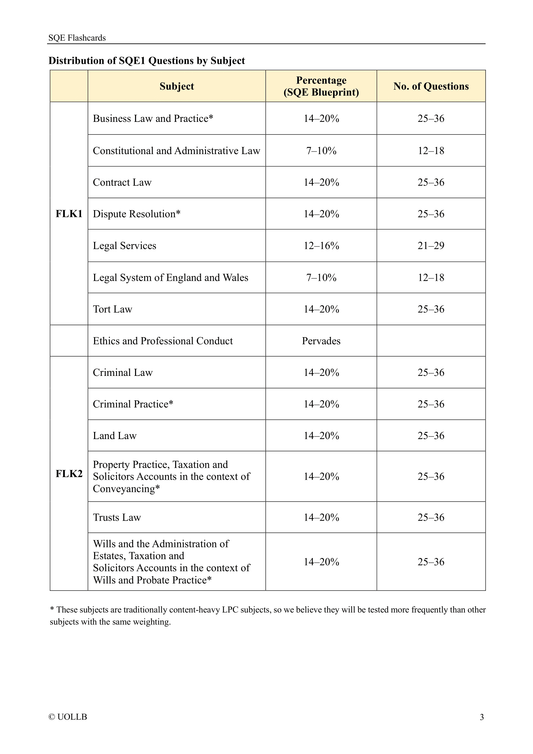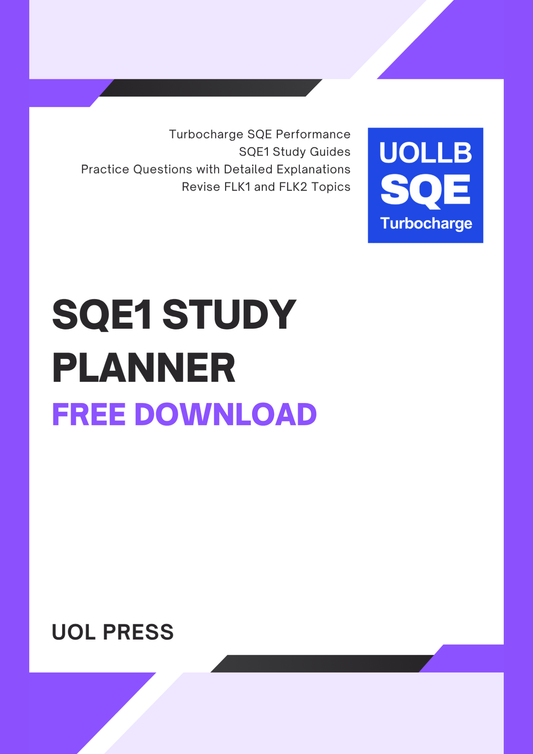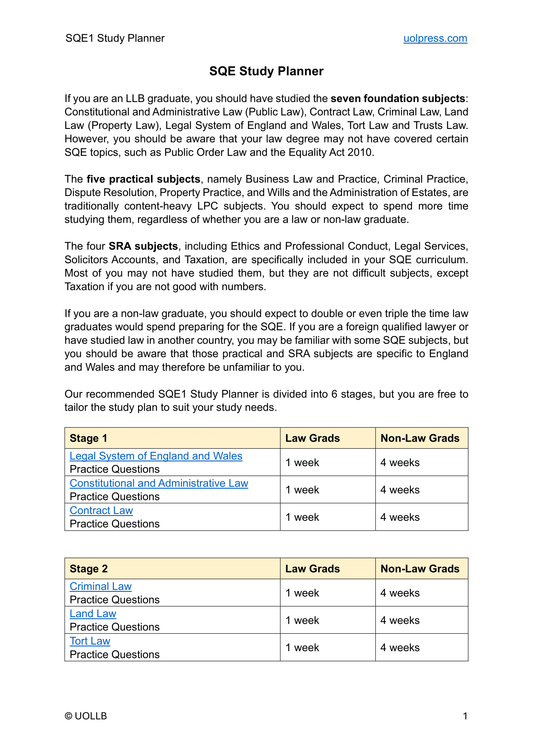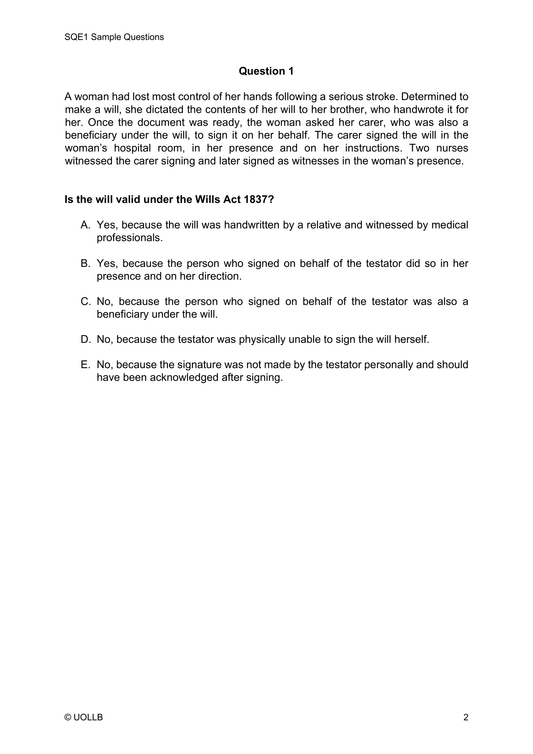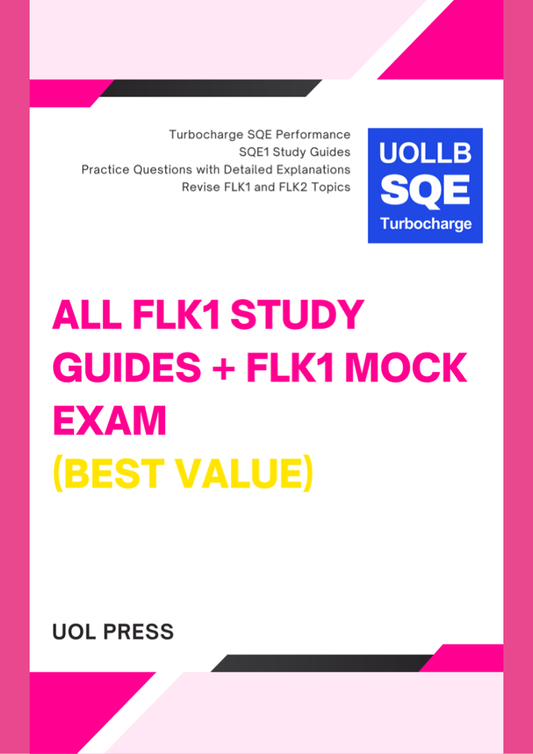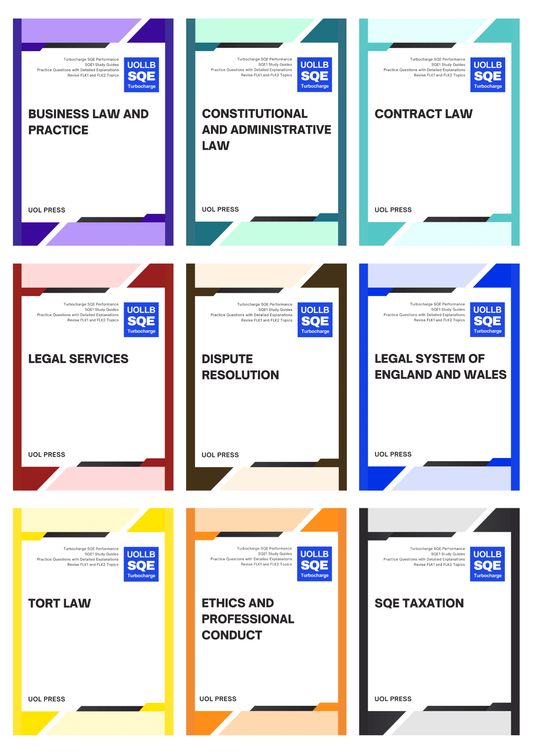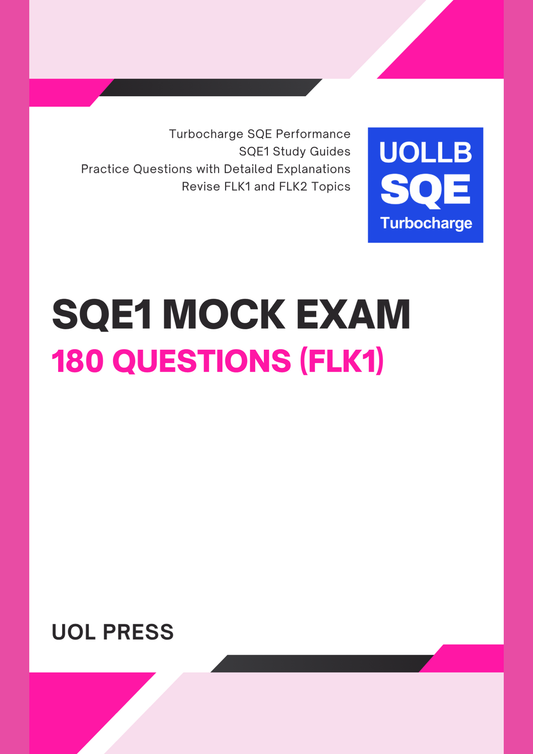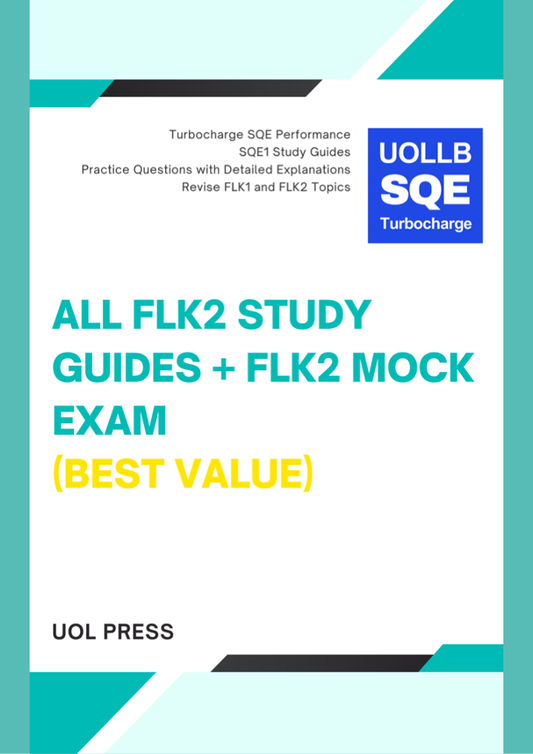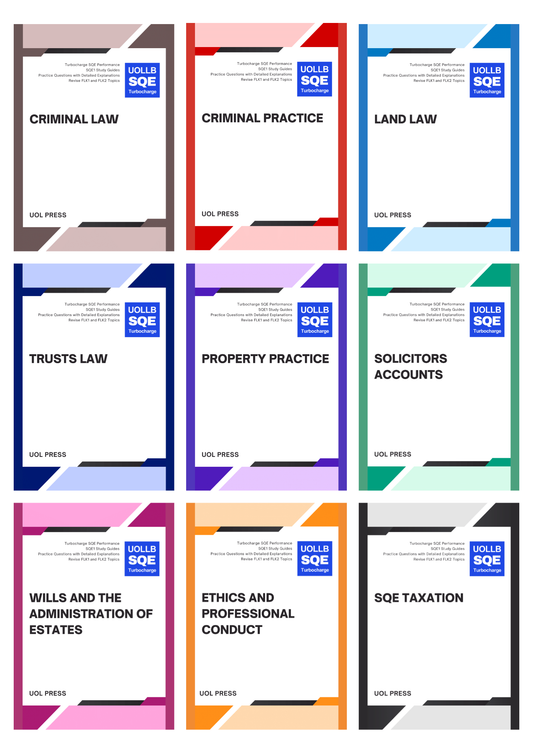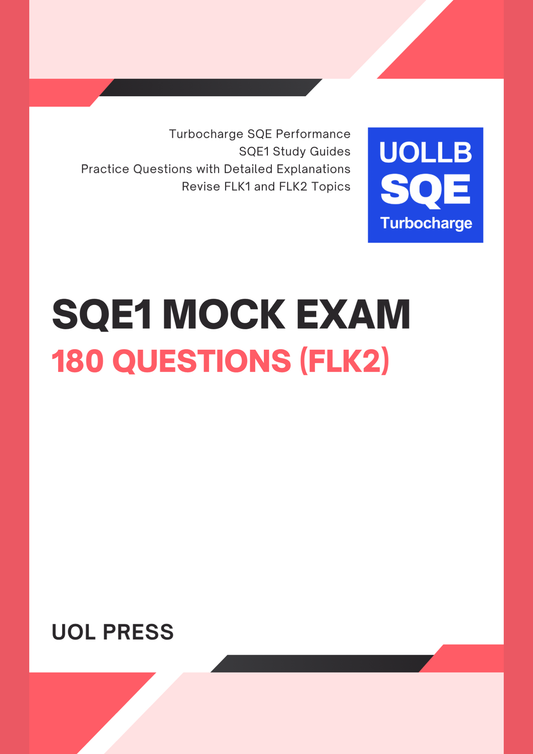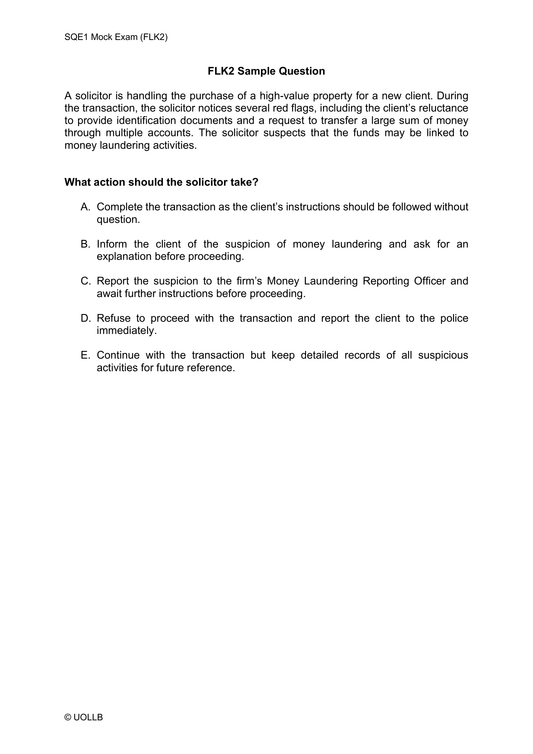Common Pitfalls of SQE and How to Avoid Them
Share
The SQE is a more challenging pathway to becoming a solicitor in England and Wales, as it requires you to achieve the standard of a day one solicitor rather than a day one trainee solicitor. While it provides a streamlined route, the demanding nature of the exams and associated requirements can lead to common pitfalls. Understanding these challenges and adopting strategies to mitigate them is essential for success.
1. Underestimating the Complexity of SQE1
SQE1 tests a vast amount of functioning legal knowledge (FLK) across multiple areas of law. You may be tempted to underestimate the scope and complexity of the material, resulting in insufficient preparation or overconfidence. To avoid this pitfall, you should start studying early and create a structured revision plan that covers all assessed areas. Use reliable study guides such as UOLLB SQE Turbocharge, and UOLLB SQE1 Mock Exam to familiarise yourself with the MCQ format.
2. Lack of Preparation for Practical Skills in SQE2
SQE2 assesses practical legal skills such as client interview, advocacy, legal writing, and drafting. You may be tempted to assume that you can make use of those skills based on your SQE1 experience. To avoid this pitfall, you are advised to practise the assessed skills in realistic scenarios well before the exam. Consider enrolling in SQE2 preparation courses or participating in workshops that simulate real-life legal tasks. If you are completing Qualifying Work Experience (QWE), focus on developing these skills in your placement. Recording yourself during advocacy or interviews and seeking feedback can significantly improve performance.
3. Poor Time Management
Balancing the demands of SQE preparation with work, QWE, or personal commitments is challenging. You may be struggling to allocate sufficient time for studying, leading to cramming or burnout. To avoid this pitfall, you should develop a realistic study schedule that accounts for your daily commitments. Set clear goals for each study session, focusing on quality over quantity. Use tools such as calendars or apps to track your progress and ensure consistent study habits. Avoid last-minute cramming by spacing out your revision over months, rather than weeks.
4. Choosing Ineffective Study Resources
With the SQE being a relatively new exam, the market is flooded with preparation materials, some of which may be outdated or poorly designed. Using subpar resources can leave candidates unprepared for the actual exam content or format. To avoid this pitfall, you should research and invest in reputable study guides such as UOLLB SQE Turbocharge specifically designed for the SQE. Check reviews and recommendations from past candidates to ensure the resources are effective and aligned with the latest SRA syllabus.
5. Ignoring the Importance of QWE
You may be tempted to treat QWE as a formality, assuming that any legal experience will suffice. This can lead to missed opportunities for gaining practical skills and developing a deeper understanding of legal practice. To avoid this pitfall, you should be proactive in securing meaningful QWE placements that align with your career goals. Choose diverse settings to gain experience in various areas of law, such as commercial law, litigation, or property law. Document your experience diligently, reflecting on the skills and knowledge acquired. This not only helps you with QWE confirmation but also strengthens your future job applications.
6. Overlooking Exam Logistics
You may face logistical issues, such as booking late and missing your preferred test centre, not having valid ID for the exam, or underestimating the time needed to travel to the test centre. To avoid this pitfall, you are advised to book your SQE assessments as soon as the booking window opens to secure your preferred test centre. Double-check that your identification documents meet the requirements and will remain valid on the exam date. Plan your travel route in advance and arrive early to avoid unnecessary stress.
7. Failing to Account for Financial Costs
The SQE exams, preparation courses, and associated materials represent a significant financial investment. You may fail to budget adequately, leading to financial strain during the process. To avoid this pitfall, you should create a detailed budget that includes exam fees, study materials, and preparation courses. Look for scholarships, employer sponsorship, or payment plans offered by course providers. Consider using self-study options or group study sessions to reduce costs.
8. Overconfidence in Exemptions
Some candidates, particularly internationally qualified lawyers, assume that their experience will exempt them from significant parts of the SQE. This can lead to insufficient preparation for the areas they are still required to pass. According to the SRA statistics, the fail rate of foreign lawyers who have already been practising law in foreign jurisdiction is higher than non-lawyers. To avoid this pitfall, you should first confirm your eligibility for exemptions with the SRA well in advance. Even if granted exemptions, review the syllabus to ensure you understand the areas not covered by your exemption. This will help avoid gaps in knowledge or skills during the assessments.
9. Neglecting Health and Well-being
The pressure of studying for SQE, working, and fulfilling personal obligations can lead to burnout, stress, or health issues. Many candidates neglect self-care, which impacts performance. To avoid this pitfall, you are advised to maintain a healthy balance between study and relaxation. Incorporate regular breaks, exercise, and sleep into your routine. If the workload becomes overwhelming, seek support from friends, family, or professional mentors. Mental health and well-being are just as important as academic preparation.
The SQE is a rigorous but achievable pathway to becoming a solicitor, provided you avoid common pitfalls. Success depends on thorough preparation, effective time management, and careful planning of both the academic and practical aspects of the qualification process. If you can fully understand the challenges and proactively address them, you can navigate the SQE journey confidently and efficiently, setting yourself up for a successful legal career.
1. Underestimating the Complexity of SQE1
SQE1 tests a vast amount of functioning legal knowledge (FLK) across multiple areas of law. You may be tempted to underestimate the scope and complexity of the material, resulting in insufficient preparation or overconfidence. To avoid this pitfall, you should start studying early and create a structured revision plan that covers all assessed areas. Use reliable study guides such as UOLLB SQE Turbocharge, and UOLLB SQE1 Mock Exam to familiarise yourself with the MCQ format.
2. Lack of Preparation for Practical Skills in SQE2
SQE2 assesses practical legal skills such as client interview, advocacy, legal writing, and drafting. You may be tempted to assume that you can make use of those skills based on your SQE1 experience. To avoid this pitfall, you are advised to practise the assessed skills in realistic scenarios well before the exam. Consider enrolling in SQE2 preparation courses or participating in workshops that simulate real-life legal tasks. If you are completing Qualifying Work Experience (QWE), focus on developing these skills in your placement. Recording yourself during advocacy or interviews and seeking feedback can significantly improve performance.
3. Poor Time Management
Balancing the demands of SQE preparation with work, QWE, or personal commitments is challenging. You may be struggling to allocate sufficient time for studying, leading to cramming or burnout. To avoid this pitfall, you should develop a realistic study schedule that accounts for your daily commitments. Set clear goals for each study session, focusing on quality over quantity. Use tools such as calendars or apps to track your progress and ensure consistent study habits. Avoid last-minute cramming by spacing out your revision over months, rather than weeks.
4. Choosing Ineffective Study Resources
With the SQE being a relatively new exam, the market is flooded with preparation materials, some of which may be outdated or poorly designed. Using subpar resources can leave candidates unprepared for the actual exam content or format. To avoid this pitfall, you should research and invest in reputable study guides such as UOLLB SQE Turbocharge specifically designed for the SQE. Check reviews and recommendations from past candidates to ensure the resources are effective and aligned with the latest SRA syllabus.
5. Ignoring the Importance of QWE
You may be tempted to treat QWE as a formality, assuming that any legal experience will suffice. This can lead to missed opportunities for gaining practical skills and developing a deeper understanding of legal practice. To avoid this pitfall, you should be proactive in securing meaningful QWE placements that align with your career goals. Choose diverse settings to gain experience in various areas of law, such as commercial law, litigation, or property law. Document your experience diligently, reflecting on the skills and knowledge acquired. This not only helps you with QWE confirmation but also strengthens your future job applications.
6. Overlooking Exam Logistics
You may face logistical issues, such as booking late and missing your preferred test centre, not having valid ID for the exam, or underestimating the time needed to travel to the test centre. To avoid this pitfall, you are advised to book your SQE assessments as soon as the booking window opens to secure your preferred test centre. Double-check that your identification documents meet the requirements and will remain valid on the exam date. Plan your travel route in advance and arrive early to avoid unnecessary stress.
7. Failing to Account for Financial Costs
The SQE exams, preparation courses, and associated materials represent a significant financial investment. You may fail to budget adequately, leading to financial strain during the process. To avoid this pitfall, you should create a detailed budget that includes exam fees, study materials, and preparation courses. Look for scholarships, employer sponsorship, or payment plans offered by course providers. Consider using self-study options or group study sessions to reduce costs.
8. Overconfidence in Exemptions
Some candidates, particularly internationally qualified lawyers, assume that their experience will exempt them from significant parts of the SQE. This can lead to insufficient preparation for the areas they are still required to pass. According to the SRA statistics, the fail rate of foreign lawyers who have already been practising law in foreign jurisdiction is higher than non-lawyers. To avoid this pitfall, you should first confirm your eligibility for exemptions with the SRA well in advance. Even if granted exemptions, review the syllabus to ensure you understand the areas not covered by your exemption. This will help avoid gaps in knowledge or skills during the assessments.
9. Neglecting Health and Well-being
The pressure of studying for SQE, working, and fulfilling personal obligations can lead to burnout, stress, or health issues. Many candidates neglect self-care, which impacts performance. To avoid this pitfall, you are advised to maintain a healthy balance between study and relaxation. Incorporate regular breaks, exercise, and sleep into your routine. If the workload becomes overwhelming, seek support from friends, family, or professional mentors. Mental health and well-being are just as important as academic preparation.
The SQE is a rigorous but achievable pathway to becoming a solicitor, provided you avoid common pitfalls. Success depends on thorough preparation, effective time management, and careful planning of both the academic and practical aspects of the qualification process. If you can fully understand the challenges and proactively address them, you can navigate the SQE journey confidently and efficiently, setting yourself up for a successful legal career.
